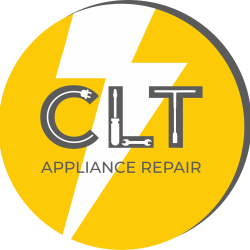Have you ever stood in front of your washing machine, listening to an ominous rattle and wondering if you’re about to face a costly repair? For homeowners in Charlotte, NC, and beyond, this scenario is all too familiar. But are protection plans the answer? Whether you’re a first-time homeowner in Ballantyne or a long-time resident of Myers Park, this information could save you hundreds, if not thousands, of dollars in the long run.
What Are Protection Plans?
These appliance protection plans, also known as home appliance plans or extended warranties, are service contracts that cover the repair or replacement of your home appliances beyond the manufacturer’s warranty period. They typically offer coverage for a range of household appliances, from refrigerators and ovens to washers and dryers.
Are Appliance Protection Plans Worth It?
This is the million-dollar question for many homeowners. The answer depends on several factors:
- Age and condition of your appliances
- Your budget and financial situation
- Your DIY skills
- The specific terms of the plan
Let’s break down the pros and cons:
| Pros | Cons |
| Predictable costs | Cost over time may exceed repair needs |
| Convenience of in-home service | Limited coverage with exclusions |
| Access to expert technicians | Deductibles for each service call |
| Coverage for multiple appliances | Potential for denied claims |
For Charlotte residents, it’s crucial to consider local repair costs and technician availability when evaluating the value of a protection plan. The Charlotte area has a competitive market for appliance repairs, which could influence whether a protection plan is cost-effective for you.
The Case for Appliance Protection Plans
- Peace of Mind:
Perhaps the biggest selling point of appliance protection plans is the peace of mind they offer. Knowing that you’re covered if something goes wrong can alleviate stress and financial worry.
- Budget Predictability:
Instead of facing unexpected repair bills, you pay a fixed monthly or annual fee. This can be especially beneficial for those on tight budgets or fixed incomes.
- Expert Service:
Many plans provide access to a network of qualified technicians and services like CLT Appliance Repair. This can be particularly valuable if you’re new to an area like Charlotte and haven’t established relationships with local repair services.
- Convenience:
Most plans offer in-home service, saving you the hassle of transporting large appliances for repairs.
- Potential Cost Savings:
If you experience a major appliance failure, the cost of the plan could be less than the repair or replacement cost.
The Case Against Appliance Protection Plans
- Cost Over Time: If you don’t use the plan, you may end up paying more than you would for occasional repairs.
- Limited Coverage: Some plans have numerous exclusions or only cover certain types of repairs. Always read the fine print carefully.
- Deductibles: Many plans require you to pay a deductible for each service call, which can add up over time.
- Quality of Service: You may not have control over which technician is sent to your home, and the quality of service can vary.
- Overlap with Existing Coverage: New appliances often come with manufacturer warranties, and some credit cards offer extended warranty protection on purchases.
Are Appliance Protection Plans Renewable?
Good news for those who like long-term peace of mind: most home appliance protection plans are renewable. Here’s what you need to know:
- Many offer automatic renewal options for convenience
- Prices may increase as appliances age
- Coverage terms might change upon renewal
- Cancellation is usually allowed, but watch for fees
- Multi-year discounts may be available
Charlotte homeowners should check if local providers, like the consumer’s energy home appliance protection plan, offer renewable options that could provide cost-effective, long-term coverage.
How Home Depot Appliance Protection Plan Work
For those considering a retail giant’s offering, here’s the scoop on the Home Depot appliance protection plan:
- Coverage typically starts after the manufacturer’s warranty expires
- Plans are usually available for 3 or 5 years
- Service calls, parts, and labor are covered
- No-lemon policy for repeated repairs (typically after four qualified repairs)
- Food loss coverage for refrigerators and freezers
- Laundry reimbursement for extended washer/dryer repairs
- Transferable coverage if you sell your home
To use the plan:
- Call the dedicated service line to report an issue
- Schedule a technician visit
- Pay any applicable deductible
- Get your appliance repaired or replaced if necessary
While Home Depot’s plan offers comprehensive coverage, it’s worth comparing it to local options in Charlotte, NC, as well as plans from other national retailers.
Factors to Consider When Choosing a Plan
Before signing on the dotted line, weigh these aspects:
- Cost vs. Potential Repair Expenses: Compare the annual cost of the plan to the average cost of repairs for your appliances. In Charlotte, you might find that certain repairs are more affordable than in other cities, which could influence your decision.
- Coverage Details: Carefully review what is and isn’t covered under the plan. Look for exclusions and limitations.
- Service Quality: Research the reputation of the company providing the repairs. Check reviews from other Charlotte residents if possible.
- Claim Process: Understand how to file a claim and how quickly service is typically provided. This is especially important in a city like Charlotte where summer heat can make a broken air conditioner an emergency.
- Deductibles and Fees: Be aware of any out-of-pocket costs associated with using the plan.
- Duration of Coverage: Consider how long you plan to keep your current appliances and choose a plan duration accordingly.
- Transferability: If you’re planning to sell your home, a transferable plan could be an attractive feature for potential buyers in the competitive Charlotte real estate market.
Alternatives to Appliance Protection Plans
If you decide an appliance protection plan isn’t right for you, consider these alternatives:
- Self-Insuring: Set aside money each month in a dedicated savings account for potential repairs. This requires discipline but gives you control over your funds.
- Credit Card Benefits: Some credit cards offer extended warranty coverage on purchases. Check if any of your cards provide this benefit.
- Homeowners Insurance: While not typically covering normal wear and tear, some policies may cover appliance failures due to certain events. Review your policy or speak with your agent.
- Manufacturer’s Extended Warranty: Compare the cost and coverage of the manufacturer’s extended warranty to third-party plans. Sometimes these can be more comprehensive for specific appliances.
- Regular Maintenance: Properly maintaining your appliances can prevent many common issues and extend their lifespan. This is a proactive approach that can save money in the long run.
Making the Right Choice for Your Home
When deciding whether to purchase a protection plan, consider your specific circumstances:
- Age of Your Home and Appliances: Newer homes in Charlotte’s growing suburbs might have all new appliances that are still under manufacturer warranty. Older homes in established neighborhoods might have appliances nearing the end of their lifespan.
- Your Comfort with Risk: If the thought of an unexpected repair bill keeps you up at night, a protection plan might be worth it for peace of mind alone.
- Your Financial Situation: If you have ample savings to cover potential repairs, self-insuring might be a better option. If a large repair bill would cause financial strain, a protection plan could be beneficial.
- Your Time and Expertise: If you’re handy and enjoy DIY repairs, you might prefer to handle minor issues yourself. If you’re short on time or not comfortable with repairs, the convenience of a protection plan could be valuable.
The Charlotte, NC Perspective
For Charlotte residents, there are some specific considerations:
- Climate: Charlotte’s hot summers can put extra strain on refrigerators and air conditioning units. Protection plans that cover these appliances might be particularly valuable.
- Local Service Providers: Research local appliance repair companies and compare their rates and reputations to the service provided by protection plans.
- Real Estate Market: If you’re planning to sell your home in Charlotte’s competitive market, transferable protection plans could be an attractive selling point.
A Balanced Approach to Appliance Protection
Whether you’re in Charlotte, NC, or anywhere else, the decision to purchase a protection plan should be based on your unique circumstances. These plans can provide peace of mind and potentially save you from unexpected, budget-busting repair bills. However, they’re not the right choice for everyone.
Consider taking a balanced approach:
- Evaluate the age and condition of your appliances.
- Research the average cost of repairs in Charlotte for your specific appliances.
- Compare the cost of protection plans to setting aside money for potential repairs.
- Read the fine print of any plan you’re considering, paying close attention to coverage limits and exclusions.
- Consider protecting only your most expensive or critical appliances rather than opting for blanket coverage.
Wrap Up
Remember, proper maintenance is key to keeping your appliances running smoothly, with or without a protection plan. Regular cleaning, proper usage, and addressing small issues before they become big problems can go a long way in extending the life of your appliances.
Don’t let appliance issues disrupt your Charlotte lifestyle. Trust CLT Appliance Repair Charlotte NC for all your appliance needs!
See Also: Common HVAC Issues
Author

- John Bennett
- John Bennett is a seasoned appliance repair specialist at CLT Appliance Repair, where he brings over a decade of technical expertise and a strong commitment to customer satisfaction. With a background in electrical and mechanical systems, John has built a reputation for reliable, efficient, and honest repair services across a wide range of household appliances-including refrigerators, washing machines, ovens, and more.







